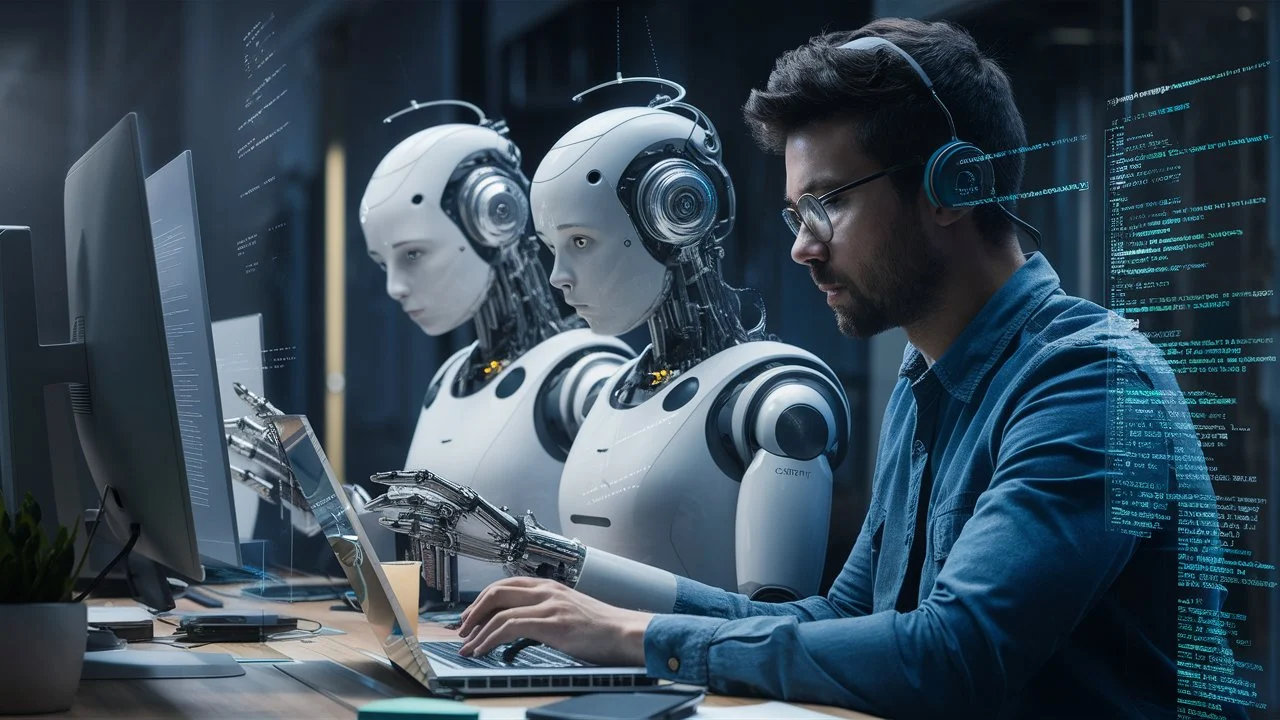Will AI Replace Programmers? Exploring the Future of Programming
The integration of artificial intelligence (AI) into various aspects of our lives has sparked debates and speculations about its potential impact on employment and industries. In the field of programming, there is a growing discussion about whether AI will eventually replace human programmers altogether. This essay delves into this topic, examining the challenges, opportunities, and implications of AI's role in programming.
The Rise of AI in Programming
Evolution of AI Technologies
AI technologies, particularly those leveraging machine learning and natural language processing (NLP), have advanced rapidly in recent years. Models like GPT-3 (Generative Pre-trained Transformer 3) have demonstrated remarkable capabilities in generating human-like text based on input prompts. These advancements have raised questions about the extent to which AI can automate programming tasks traditionally performed by human programmers.
Capabilities of AI in Programming
AI models like GPT-3 have showcased their potential in assisting with various programming tasks. They can generate code snippets, provide debugging assistance, and even offer suggestions for optimizing algorithms. This has led to speculation about the possibility of AI automating large portions of the programming process, potentially replacing the need for human programmers in certain contexts.
Challenges and Considerations
Understanding the Complexity of Programming
While AI models like GPT-3 can generate code based on input prompts, they lack true understanding of the underlying principles of programming. Programming involves more than just writing code; it requires problem-solving skills, creativity, and domain expertise. Human programmers bring a depth of understanding and intuition that AI currently cannot replicate.
Creativity and Innovation
Programming is a creative endeavor that often involves finding innovative solutions to complex problems. While AI can assist with repetitive tasks and generate code based on existing patterns, it may struggle to innovate or adapt to new challenges. Human programmers possess the creativity and ingenuity necessary to push the boundaries of what is possible in software development.
Quality and Reliability
The quality and reliability of code generated by AI models are also areas of concern. While AI-generated code may be syntactically correct, it may lack the elegance, efficiency, and robustness of human-written code. Additionally, AI models are susceptible to biases present in the data they are trained on, which can manifest in the code they generate.
Ethical and Societal Implications
Impact on Employment
The widespread adoption of AI in programming could have profound implications for employment in the tech industry. While automation has historically led to the displacement of certain jobs, it has also created new opportunities and shifted the nature of work. The rise of AI in programming may necessitate a reevaluation of traditional roles and skill sets within the industry.
Accessibility and Equity
On the positive side, AI-driven tools could democratize access to programming and software development, allowing individuals with limited technical background to create functional applications. However, it is essential to address concerns about equity and accessibility to ensure that AI-driven solutions benefit everyone, regardless of their background or resources.
Conclusion
While AI technologies like GPT-3 have made significant advancements and shown potential in automating certain programming tasks, the idea that AI will completely replace human programmers remains speculative. Programming is a multifaceted discipline that requires a combination of technical expertise, creativity, and problem-solving skills—qualities that are difficult for AI to fully replicate.
Instead of viewing AI as a threat to the role of human programmers, it should be seen as a tool that can augment their capabilities and streamline certain aspects of the programming process. By leveraging AI-driven tools responsibly and thoughtfully, programmers can enhance their productivity, improve code quality, and tackle increasingly complex challenges in software development. Ultimately, the future of programming lies in the collaboration between human ingenuity and AI-driven automation.

Post a Comment